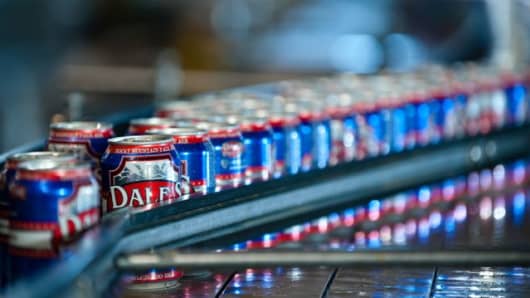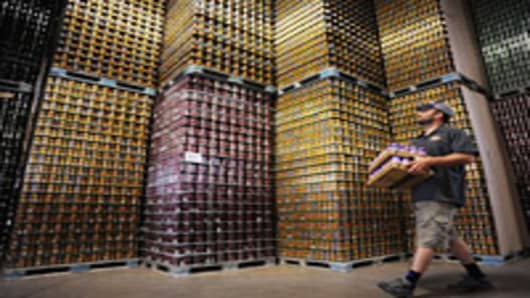When he started, Katechis used a tabletop machine to create a hand-canning line that sealed one can at a time. From that humble beginning, Oskar Blues has grown to become the largest American craft brewery to exclusively package beer in cans. The brewer produced 59,000 barrels of beer last year, and is on pace for 90,000 barrels this year.
The brewery also has posted seven years of consecutive double-digit growth, a trend which has catapulted it to become one of the three “Biggest Momentum Gainers” on the Brewers Association's annual list of the top 50 craft brewers.
Oskar Blues is expanding to the East Coast with a brewery and taproom opening in Brevard, N.C., in December. The 30,000-square-foot brewery will include a separate restaurant and live music venue, and will expand its brewing capacity to nearly 140,000 barrels in 2013. (For more: North Carolina Crafts a New Beer City, USA)
In the first six months of this year, Oskar Blues' revenue is up 53 percent, and the company recently announced plans to enter the Chicago market. In short, the only thing hotter than the trend of craft beer in a can may be the brewery that started it all.
CN: Many of the craft beer pioneers, like Boston Beer’s Jim Koch or Sierra Nevada’s Ken Grossman, had to educate consumers, retailers and distributors on concept of craft beer. You had to do some of that, but you also had the additional challenge of having to convince people that you could have a great beer in a can. Take me back to when no one was putting beer in cans. How hard was it to convince people that a canned beer wasn't a bad thing?
DK: Well rewinding back to that time, everyone involved — from the retailer, consumer, distributor — everyone involved could never really conceive of a quality beer in a can. Our original fear was that people would think [craft beer in a can] was a gimmick. We knew it wasn't, but how do we convince them? We needed to put the beer in front of them and educate them. So we knew we had to be the ones to deliver the beer to retail and literally drove it one by one to the stores so we could stand there in front of them, get them to try it and look them in the eye when we said, “Hey, would you buy my beer?”
CN: You had to win them over twice. First about the beer on the inside and then about the container itself.
DK: Well once they tasted it, they said, "Hey, this is great." It was a little surreal, I guess, that there is a multidimensional and fully flavored craft beer in a can. But we felt like we were one up on everyone else especially once we began to educate them on the benefits of the package. So we didn't really need to convince them, we just needed to get the beer in from of them. Then we had the opportunity to educate them on the benefits of beer in a can and it became a no-brainer.
CN: It’s an interesting way of looking at it, not that you had to educate people, but that you were given the opportunity to educate them. Basically what some people would see as a potential problem, you actually saw as positive thing?






